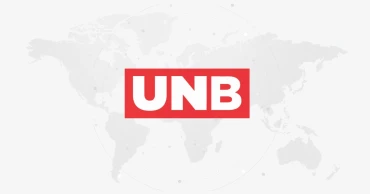right economic direction
Only 25% of respondents think country heading in the right economic direction: Asia Foundation, BIGD survey
A recently published report jointly conducted by The Asia Foundation and BIGD of BRAC University revealed that only 39 percent of the participants agreed that Bangladesh is heading in the right political direction and about 48 percent disagreed.
The report is based on a survey titled ‘The State of Bangladesh’s Political Governance, Development and Society’. It sheds light on Bangladeshi citizen’s perception about the political, economic, and social atmosphere of the country.
The survey collected data from 10,240 adult men and women, representing all 64 districts, between November 2022 and January 2023. The same survey was also conducted in 2019, 2018, and 2017.
The survey respondents were asked whether they thought that the country is heading in the right direction – socially, politically, and economically.
IRI Survey: What accounts for Sheikh Hasina’s sustained popularity?
While a modest majority, 58 percent, agreed that Bangladesh is heading in the right direction socially, 39 percent disagreed, the report said.
This perception was the lowest for economic direction, with only 25 percent saying that the country is heading in the right economic direction and whereas 70 percent disagreeing.
These percentages, across all three domains, are significantly lower than what they were in 2019, indicating a considerable deterioration of public perceptions about the country’s future.
On the question of democracy, about 54 percent of the respondents in 2022 agreed that one party plays a dominant role in politics and governance, which was reported by an even higher percentage, 72, of the respondents in 2019.
Vegetables and egg prices decline a bit, but not enough to calm consumers: UNB market survey
However, in 2019, only 11 percent thought that the dominant party’s impact on politics was negative. This year this percentage is notably higher – 34 percent, said the report.
Regarding the Rohingya crisis, 34 percent of respondents said they would welcome them in their community in 2018, which was reduced to 15 percent in 2019 and to 13 percent in 2022. About 44 percent feel that the government is doing a lot and 44 percent were of the opinion that the government is doing enough to support the refugees, it said.
About Padma Bridge, 72 percent said that it is the most important success in Bangladesh; 47 percent credit the bridge’s construction to Prime Minister Sheikh Hasina, while 28 percent credit the Bangladesh government.
Unemployed population increased by 2.70 lakh in 1st quarter of 2023: BBS survey
The report also identified that the lower income group’s positive response regarding the country’s economic direction, in particular, decreased considerably compared to the higher income group.
“In 2019, about 84 percent of respondents with a monthly income of Tk 5,000 or less said the country is heading in the right economic direction; only 32 percent said so in 2022,” it said.
“As the major problems facing Bangladesh, price hike came out as the top problem, mentioned by 44 percent of the study respondents. And when specifically asked about the impact of price hike, about 84 percent of all respondents in 2022 said that it has severely impacted their lives. Other significant problems mentioned by the respondents included business downturn, unemployment, corruption, and political instability,” the report added.
CPD survey reveals Tk 1500cr social safety funds spent on ineligible beneficiaries
2 years ago

